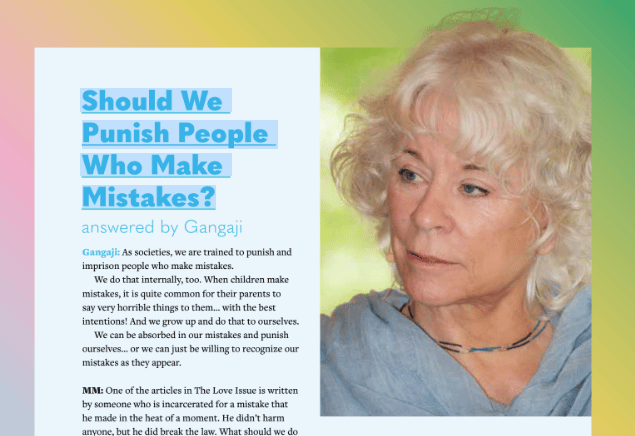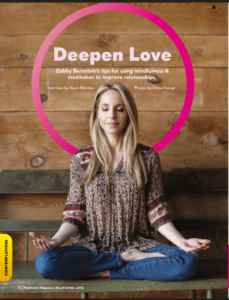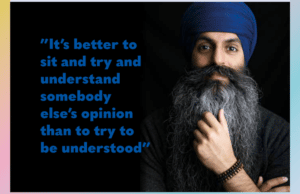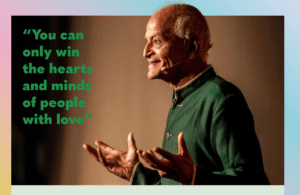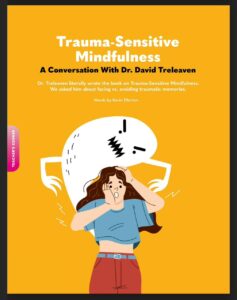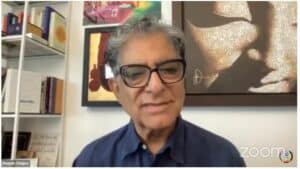Watch our full interview with Gangaji below!
MM: One of the articles in The Love Issue is written by someone who is incarcerated for a mistake that he made in the heat of a moment. He didn’t harm anyone, but he did break the law. What should we do with people who make mistakes? Should we put them in prison? Or should we be doing something different?
Gangaji: I definitely think we should be doing something different. There’s a whole movement for the abolition of prisons. But I wouldn’t say I’m an abolitionist of prisons in general. There are heinous crimes, and there are beings that are harmful to society. But our prisons are overloaded with people who committed burglary, drug use, car theft – mistakes! They need to be taught that they are mistakes. That’s essential – to learn what it means to be a responsible human being in a group of other human beings. This can only happen when we recognize – as individuals, and as a society – that we are playing the role of the “punishing parent” or “punishing God.” We must be willing to forgive.
MM: Do you feel internally or externally, within ourselves or within society, that punishment is ever an appropriate response? Or should it always be replaced with things like education and meditation?
Gangaji: Maybe punishment is appropriate in certain cases… but it should never be only punishment. Punishment should always be accompanied by education, by love, by some attempt at generating understanding.
In the United States, our prison system is the worstin the world in terms of the numbers of prisoners, and the racial implications that go along with that. That’s not based on love and understanding. That’s based on hate and disposal. If we can recognize that within ourselves, and stop that, and recognize the horror of that, then we’re more available to support the people
who are caught in the system.
I’m so happy to hear that this prisoner’s part in this issue of Meditation Magazine. We have a prison program at the Gangaji Foundation, that is, to me, in many ways, the heart of the Foundation. Because it’sa recognition that there is no final difference between“them” and “us.”
To read more about the full interview and get this issue (and also get 4 more issues in your first year), don’t forget to subscribe! Digital mag | print magazine!

